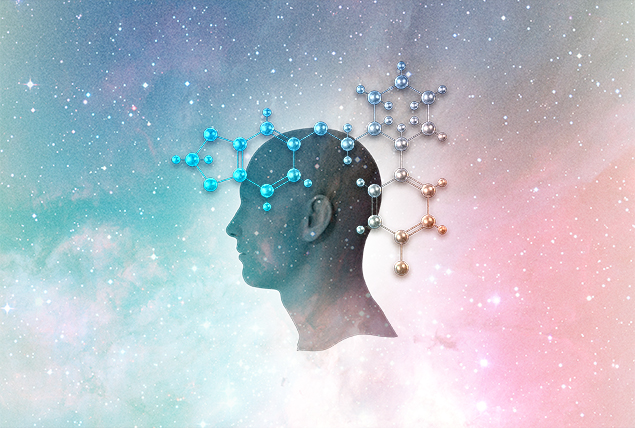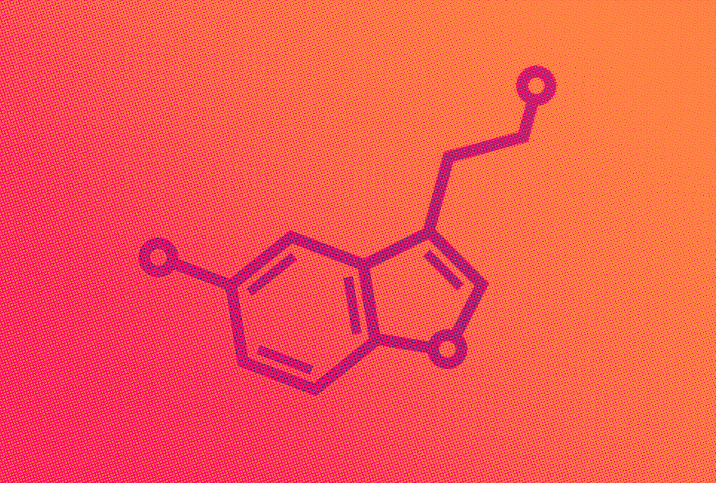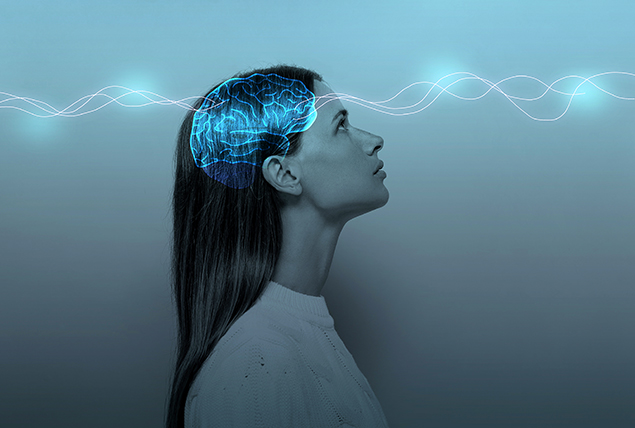Is Serotonin Only Good for Mood Regulation?

Serotonin is a complex and vital chemical. A neurotransmitter produced in the brain, it is also a hormone produced in the gut. Serotonin flows in our bloodstream and affects nearly every physiological process.
At the same time, the serotonin produced in the brain is associated with nearly all behavioral processes.
The discovery of serotonin is linked to the birth of neuroscience itself. This exhibits just how vital the compound is to our understanding of the biology of the mind.
So what are the many roles of serotonin? How and where it is produced in the body? What are its impacts on the electrical activity of the brain and how do serotonergic drugs affect this impact? What is serotonin's role in sexual and mental health?
What are the serotonergic systems?
The story of serotonin begins with understanding the two 'serotonergic systems' of the body. Serotonin is produced in both the brain and the gut. Approximately 95 percent of the body’s serotonin is produced in the gastrointestinal (GI) tract by specialized cells known as enterochromaffin (EC) cells.
Researchers describe gut-derived serotonin as an important metabolic hormone with an impact that goes beyond the GI tract. Further research is required, but gut-derived serotonin is involved in a number of bodily processes.
Regulation of GI motility
An important regulator of gut motility, serotonin influences the movement of food and waste through the digestive system. Serotonin abnormalities have been linked to functional bowel disorders such as irritable bowel syndrome (IBS).
Regulation of intestinal secretion
The hormone stimulates the secretion of enzymes and helps maintain lipid metabolism and thermoregulation. Serotonergic abnormalities have been linked to obesity.
Modulation of gut inflammation
Serotonin plays a role in regulating inflammation in the gut and may contribute to conditions such as inflammatory bowel disease (IBD).
Regulation of glucose homeostasis
Gut-derived serotonin has been implicated in the regulation of glucose metabolism, and serotonergic abnormalities have been linked to type 2 diabetes.
Regulation of bone density
Some studies have suggested that serotonin derived from the gut may play a role in the regulation of bone density. Higher levels of serotonin have been associated with decreased bone density in some studies.
However, research is conflicted, and further investigations are still required.
According to experts, the EC cells that produce serotonin are also sensory cells, which could help explain why serotonin seems to affect so many different physiological functions. These cells take cues from nutrients that are ingested, the gut microbiome and the enteric nervous system, and they produce serotonin as suggested, based on these cues.
Serotonin plays roles in learning and memory, regulating body temperature, healing wounds, and promoting healthy bones, according to Jamie Bichelman, a mental health researcher in New York City with master's degrees from Harvard University and New York University.
Because more than 90 percent of serotonin in the body is gut-derived, it also influences hormonal, autocrine (cell signaling), paracrine (cell communication) and endocrine actions.
"Therefore, as it relates to serotonin in the GI tract, serotonin plays a part in both digestion and reducing hunger while eating," he added. "Nausea occurs when serotonin is released into your gut faster than it can be digested."
Serotonin produced in the brain
"Serotonin is central to many of our behavioral responses. In fact, serotonin has been implicated in practically every type of human behavior, including appetitive, emotional, motor, cognitive and autonomic,” said Faisal Tai, M.D., a board-certified psychiatrist with Psychiatry of Texas in Houston and the CEO of online mental health provider PsychPlus.
Tai said Cleveland Clinic refers to serotonin as your body's natural 'feel-good' chemical because of how it helps regulate mood.
"Healthy serotonin levels allow people to feel more focused, happier and calmer," he said.
Neurochemistry research suggests serotonin is involved in the regulation of a variety of physiological functions and behaviors.
"In addition to eating, serotonin influences sleep and is involved in balancing our circadian rhythm," Bichelman said. "Research into the neural basis of moral judgment and behavior has led to the theory that serotonin influences prosocial behavior, giving us an aversion to harming others. Melatonin is synthesized from serotonin, an important function not commonly understood among the general population."
What keeps serotonin levels balanced?
"The biological systems required to keep serotonin levels where they should be include the serotonergic neurons in the brain and the serotonin transporter proteins," said Danielle Kelvas, M.D., a primary care physician and writer in Johnson City, Tennessee, and the chief medical advisor at Sleepline.
"The serotonergic neurons are responsible for synthesizing and releasing serotonin into the synaptic cleft," she added. "The serotonin transporter proteins are responsible for removing serotonin from the synaptic cleft and re-circulating it back into the serotonergic neurons."
Serotonin levels that are too low, according to Kelvas, can lead to symptoms that include the following:
- Depression
- Anxiety
- Fatigue
- Difficulty concentrating
She said high serotonin levels can lead to symptoms such as:
- Agitation
- Restlessness
- Insomnia
- Confusion
Serotonin's role in depression
Perhaps serotonin's best-known role is as a player in depression. That role is being reexamined in light of more recent research, including a study from 2022 that suggests depression's causes might not be as simple as a chemical imbalance in the brain. It's possible serotonin has been labeled a culprit for decades when it's actually one factor of many.
Serotonergic drugs such as selective serotonin reuptake inhibitors (SSRIs) work by increasing the amount of serotonin between neurons. It is believed this increases the electrical activity, thereby alleviating symptoms of depression.
These medications can increase the concentration of serotonin in the brain, but it is not clear whether they affect the actual production of serotonin. Rather, they work by preventing the serotonin from being reabsorbed (reuptaken) back into the neuron in which it was produced (which is a natural process).
While SSRIs and other serotonergic medications have been shown to be effective, the reasons why aren't completely understood. Some researchers, including those who conducted the 2022 study referenced earlier, believe it may be an amplified placebo effect, while others suggest their true efficacy has been overstated.
Importantly, depression cannot be broken down into a simple theory and may likely require a multidisciplinary approach: cognitive behavioral therapy, mindfulness meditation, regular exercise, ample sleep, and a balanced and nutritious diet.
Antidepressants and their side effects
Also, as effective as they may be, serotonergic medications—fluoxetine, fluvoxamine, paroxetine, sertraline—come with side effects when used long-term, such as:
- Emotional blunting
- Bone degeneration
- GI distress
- Headaches
- Sexual dysfunction
- Weight gain
As a point to note, the last four side effects on this list may also be present during short-term use of these medications.
"Of particular interest to many is serotonin's involvement in modulating sexual activity. Activation of the serotonergic system decreases sexual behavior, while inhibition increases it," Bichelman said. "This helps explain why selective serotonin reuptake inhibitors prescribed for depression often cause sexual dysfunction as a side effect."
Research into this side effect suggests that an increase in serotonin may affect other hormones and neurotransmitters, such as testosterone and dopamine, Bichelman suggested. Disruption of those hormones could lead to sexual dysfunction since testosterone can affect sexual arousal and dopamine plays a role in achieving orgasm.
It is important to talk with your healthcare provider and understand the potential impact of serotonin and serotonergic antidepressants on your sexual health.


















